MercoPress. South Atlantic News Agency
Stories for June 2011
-
Thursday, June 9th 2011 - 01:02 UTC
Organized labour leader Moyano admits “inflation in Argentina is a problem”
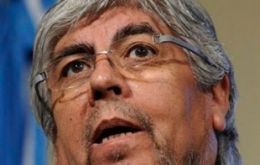
Argentina’s organized labour leader Hugo Moyano admitted Wednesday that “inflation in Argentina is a problem”. He also said that, despite the several criminal cases open against him, he is not afraid of going to jail.
-
Thursday, June 9th 2011 - 00:54 UTC
Bernanke argues strong demand for commodities is depressing US dollar value

US Federal Reserve rejected criticism that its actions (‘accommodative monetary policy’) have pushed down the foreign exchange value of the US dollar and thereby boosted the price of commodities, adding that the Fed is “fully committed” to maintaining the dollar’s purchasing power and to keeping inflation in check.
-
Thursday, June 9th 2011 - 00:47 UTC
Fed New York calls for “fiscal house in order” without “derailing recovery”

Federal Reserve Bank of New York President William C. Dudley said the US must reduce the federal budget deficit without derailing the economic recovery. “No issue is more important than a credible commitment for getting our fiscal house in order, but at a pace that does not forestall a sustained recovery” said Dudley this week addressing the Foreign Policy Association in New York.
-
Wednesday, June 8th 2011 - 23:38 UTC
Bernanke admits US recovery is “frustratingly slow”, but will gain speed in second half
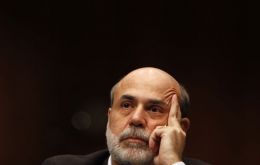
US Federal Reserve Chairman Ben Bernanke said the “frustratingly slow” US recovery warrants sustained monetary stimulus while predicting that growth will gain speed in the second half of the year.
-
Wednesday, June 8th 2011 - 23:32 UTC
Brazil unveils plan and incentives to boost ethanol production

Brazil's government unveiled new financing and other incentives for sugar cane ethanol production, vowing to work closely with the private sector to boost production in an industry that has struggled recently despite its immense promise.
-
Wednesday, June 8th 2011 - 23:20 UTC
China completes first high-speed electric train for Rio do Janeiro
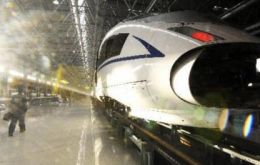
China has built the first high-speed electrical train for Brazilian capital Rio de Janeiro in time for use during the 2014 World Cup Football and 2016 Olympic Games.
-
Wednesday, June 8th 2011 - 23:16 UTC
Brazil, India, Russia increased global proven oil reserves by 0.5% in 2010 says BP

Global proven oil reserves rose by 0.5% in 2010, boosted by increases in Brazil, India and Russia, according to British Petroleum. Deposits advanced to 1.3832 trillion barrels at the end of last year from a revised 1.3766 trillion in 2009, BP said in its annual Statistical Review of World Energy.
-
Wednesday, June 8th 2011 - 23:09 UTC
GM bets strongly in South American market: 1.5 million cars per annum by 2015

General Motors expects to sell 1.5 million vehicles a year in South America by 2015, up from 1.03 million last year, according to the head of the largest U.S. automaker's operations in the region.
-
Wednesday, June 8th 2011 - 23:03 UTC
Rocketing values for cattle in Brazil anticipate ‘beef prices will remain high’
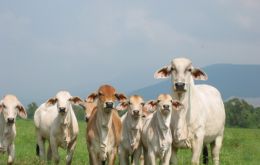
World beef prices look set to stay high long term given the rocketing prices of raising cattle in Brazil, and the lack of an obvious successor as the world's low-cost producer.
-
Wednesday, June 8th 2011 - 23:00 UTC
Energy-short Argentina stocking LNG to face falling winter temperatures
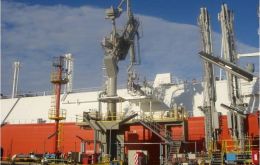
Argentina will receive this week two LNG cargoes from Spain's Gas Natural as it steps up purchases to meet rising demand in the face of falling temperatures, according to Argentine state owned energy company Enarsa sources.
